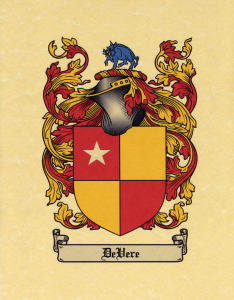As part of this series, I am going to discuss a number of literary and cinematic influences on the WK, which are acknowledged by GW in varying ways.
One of these is Edmund Spenser’s The Faerie Queene. I have only read a small portion of the poem. To summarize:
- The Faerie Queene (FQ) is a long, epic poem written by Edmund Spenser during Queen Elizabeth I’s reign. It was not finished.
- The FQ’s key characters are Gloriana, queen of Faerie Land, and the King Arthur of legend, here only a Prince.
- During the poem a number of Prince Arthur’s knights experience various adventures in Faerie Land.
- Spenser intended that the FQ, in part, act to instruct its readers about various private and public virtues. Each knight in the FQ was to be associated with a specific virtue.
- The FQ was also a political and religious work, an allegory of the struggle of protestant England of Elizabeth’s reign vs. the Catholic Church, which was portrayed negatively.
- Spenser modeled certain characters in the FQ on real figures of the Elizabethan era. Gloriana represented Queen Elizabeth. Sir Walter Raleigh, John Dee, Mary Queen of Scotts, and other famous persons are also believed to be represented in the FQ.
- Michael Andre-Driussi identifies one clear reference to the FQ in his WKC. The character of Squire Yond seems to be a counterpart to Sir Guyon of the FQ (Yond = Guyon). Yond tries to break up the fight between Able and Duke Marder’s knights in The Knight. He throws himself over Able’s body to protect him. Sir Guyon also apparently broke up several fights between knights in the FQ.
I would propose that the WK, is in part, GW’s version of/tribute to the FQ:
- Like Spenser in the FQ, GW is telling the story of various knights (primarily Able), as an instructional tool for readers. Able, Toug, Svon, Wistan etc. are intended to represent examples of virtues or qualities, including honor, courage, etc. Notice how the narrative seems to shift in the later half of the WK to give more time and dialog to Toug, Svon, and Wistan, all of whom are successful in becoming knights.
- Org the ogre is loosely based on the Orgoglio character in the FQ. Orgoglio is a giant like beast that is defeated by Arthur, similar to Able’s subdual of Org.
- Able seems a good match for the Redcross Knight. The Redcross knight, like Able, is partly raised in fairyland. He later fights and slays a dragon. He pursues a love interest, Una, throughout his story.
- Like Spenser, GW models certain characters in the WK on real people of Elizabethan England.
- One of Duke Indign’s counterparts appears to be Edward De Vere, the Earl of Oxford, who some have proposed is the true author of William Shakespeare’s plays.
- This is done by stating that Indign’s badge was the “blue boar” in Chapter 2 of The Knight. The blue boar was the family crest or badge of England’s De Vere family (see image below).
- MAD has identified “indign” as coming from the Middle English word for “unbecoming” or “disgraceful”. Perhaps this is GW’s reference to the Shakespeare controversy, as most scholars believe that De Vere was not that great a writer, and did not author Shakespeare’s plays.
- The married De Vere got one of the Queen’s ladies in waiting pregnant, and was briefly imprisoned in the Tower of London, and then banished. This tracks with Indign’s other WK counterpart, which I discuss in the post on Toug’s parentage.
I admit that the linking of Elizabethan era persons with the WK is a big leap. However, I cannot find any other explanation for the “blue boar” reference. As John Clute says, GW doesn’t use words inadvertently. I think there are some other allusions to Elizabethan era figures in the WK. I have tentatively identified them, but this series is too long already.
Version 1.1 Addendum
David Stockhoff of the Urth mailing lists suggests that I may be over thinking the De Vere/Indign reference. Perhaps its just De Vere scandal with the Lady in Waiting, and not the Shakespeare controversy, that GW is alluding to. This could very well be, and would track with the “Men and Women” theme I explore in later posts, particularly about Toug’s parentage.
version 1.1

